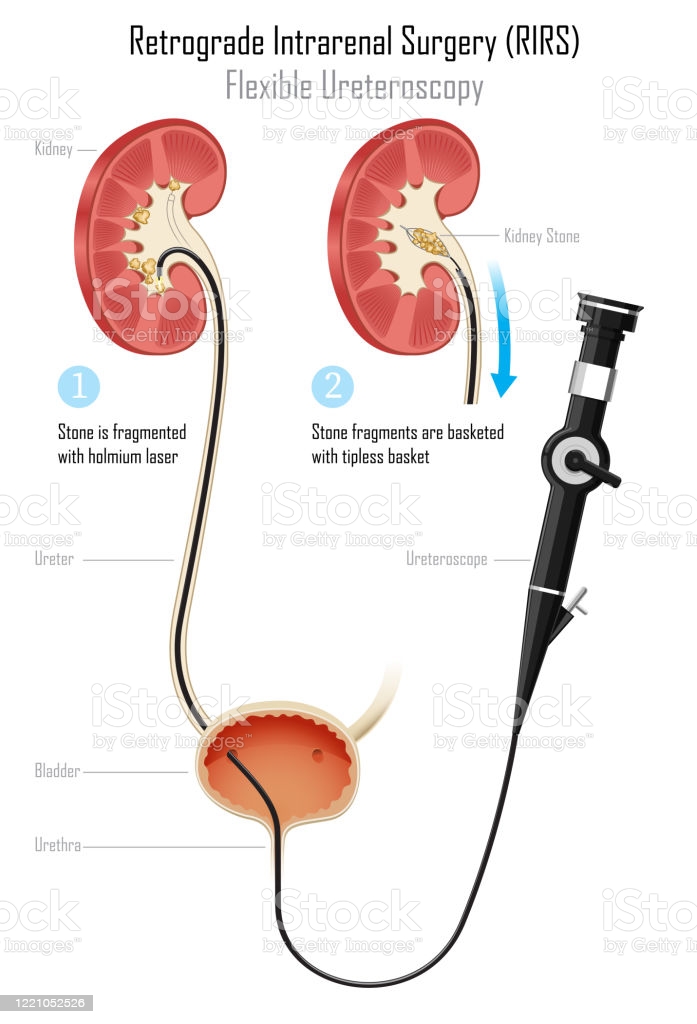
RIRS
Retrograde Intrarenal Surgery, commonly known as RIRS, is a retrograde ureteroscopic technique for extracting kidney stones. In this procedure, surgeons make the urethra the pathway to reach the kidneys. It is a method that does not require any cuts or holes and is minimally invasive. The surgeons reach the kidneys with an optic endoscope, locate the stones, and then reduce the stones to dust with a laser. When large or complicated stones cannot be treated with lithotripsy, this method is typically used. RIRS has a high success rate and almost no chance of complications.
The majority of patients who undergo the procedure have kidney stones that are less than 15 millimeters in size. However, some studies indicate that, depending on the patient's age, history of open surgery, number of stones, and other factors, RIRS can also be used to treat kidney stones up to 20 millimeters in diameter.
Before RIRS, some common diagnostic tests include:
- Imaging tests (KUB X-Ray, abdominal ultrasound, MRI)
- Blood urea nitrogen (BUN) test
- Blood test
- Urinalysis
The following are some indications of RIRS Surgery:
- Kidney stones that are too large for lithotripsy
- Kidney stones in children
- Strictures in the kidney
- Bleeding disorders in the kidneys
- Failures in other treatment methods
- Obese patients
Make an appointment right away for consultation on your urological issue.
Call With Doctor